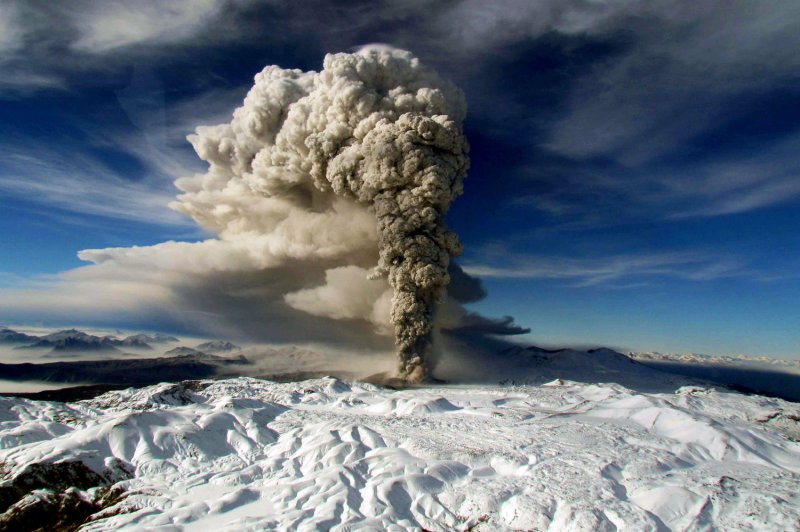This image released by the Chilean Air Force on June 14, 2011 shows the Puyehue-Cordon Caulle volcano spewing ash. (UPI/Chilean Air Force) |
License Photo
LIVERMORE, Calif., Feb. 24 (UPI) -- An uptick in volcanic activity around the world helps explain why global warming temperature trends have waned over the last decade or so. At least, that's what scientists say a new study, published in the journal Nature Geoscience on Sunday, shows.
Over the last decade and a half, global temperatures have failed to ascend at the same blistering pace that climate scientists predicted. Ever since a scaldingly hot 1998, warming trends have slowed.
The warming hiatus has puzzled climatologists. Some worry the slowdown will dampen the urgency for political action on climate change -- possibly even enabling world leaders to put off reaching a greenhouse gas emissions deal at the UN summit on climate change in Paris next year.
But scientists say this latest study helps solve at least part of what lead author, Benjamin Santer of the Lawrence Livermore National Laboratory in California, calls "a complex detective story." Since 2000, at least 17 volcanoes have erupted around the globe, including Nabro in Eritrea, Kasatochi in Alaska and Merapi in Indonesia. These eruptions spew large amounts of sulfur into the lower atmosphere, blocking the warming powers of the sun. Researchers calculated that the increase in sulfur accounted for 15 percent of the warming slowdown.
“Volcanoes give us only a temporary respite from the relentless warming pressure of continued increases in carbon dioxide,” Piers Forster, Professor of Climate Change at the University of Leeds, told The Guardian.
Scientists say additional investigations are needed to explain the other 85 percent; but climate experts have proffered a number of other factors -- such as a decline in the sun’s output, Chinese output of sun-blocking pollution, and an increased absorption of heat by the world's oceans -- as potentially responsible for the warming slowdown.
While warming has slowed, temperatures are still on the rise. The new century has featured 13 of the 14 hottest years on record. And with greenhouse gas emissions regularly reaching new heights, scientists expect warming trends to pick up the pace in the near future.
[Nature Geoscience]
[The Guardian]















